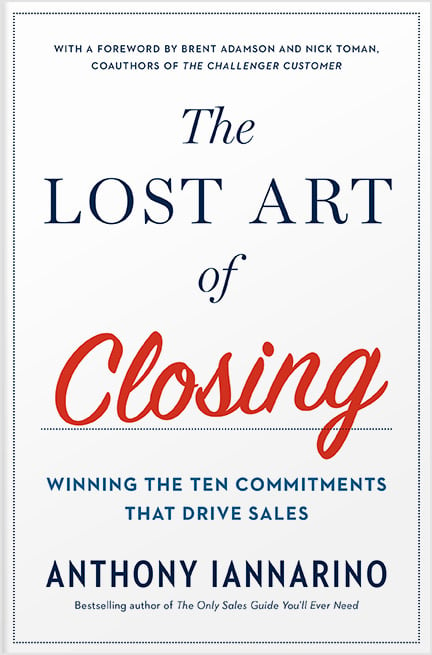The Gist:
- Some conversations are better held early in the sales conversation.
- Trying to create value at the end of the sales cycle by adding an incentive is a concession, not a negotiation.
- You are always better off creating value around the decision your client is making, positioning yourself as the most consultative salesperson and one worth choosing as a partner.
Recently, I listened in on part of an online conversation about whether salespeople should ever negotiate. The part I heard focused on how to negotiate and how to “bring value,” which the participants saw as trying to justify the delta between the price a salesperson gave their prospective client and their competitor’s pricing.
Much of that conversation, I think, was in reaction to a common scenario at the end of a sales conversation. It’s what we might call “being on your back foot,” a concept from the sport of boxing where one fighter is being pressured to go backward, a difficult place from which to win a contest. You want to be on your front foot as much as possible, so you aren’t playing defense just to close a deal.
In all important things, it is better to proactive than reactive. Both value creation and negotiation should start much earlier in the conversation, as waiting to address them harms you more than you might suspect.


The Timing of the Negotiation
One of the questions in that conversation was something like, “What do you do when your prospective client says that you price is higher than they thought it was going to be?” Many of the people who answered this question gave helpful answers, featuring good strategies and good language choices. But often they only treated the symptom, not the underlying disease. Given enough time, most symptoms will reappear unless you cure the illness! That us to a much more important question: when should negotiation occur?
While many salespeople believe that negotiation should happen at the end of a conversation, I would argue that it starts in your very first meeting and continues on until you get ink on paper. There is no reason to withhold your pricing until the very end of the sales conversation, surprising your client with the difference between your quote and your closest competitor’s quote. While you should certainly differentiate the value you create and justify that price through your sales process, that alone won’t persuade decision-makers to pay an “extra” eleven percent for your solution.
If you have a higher than average price in your space, you are better off gaining an agreement that your prospective client, ensuring that they are willing to pay more for something that provides great value and reduces their overall costs. After all, how can you provide a client with a solution without knowing what they are willing and able to spend? A simple statement works well here: “The range for the right solution is between $175,000 and $245,000, but based on our conversation, the necessary investment is going to be a lot closer to the upper range. Is that tracking with what you were thinking?” Having shared that your price is higher, you have now created the context for future conversations, including the conversation about the right solution.


When It’s Too Late to Create Value
The very worst possible time to try to create value is right after your prospective client complains about your pricing. Not only is this awkward, but it also puts salespeople on their back foot, occasionally prompting them to say bad things about their competitors as a way to gain an advantage.
When you have not created enough value to command your price, the natural response is to try make the deal (or your solution) more valuable, hoping your prospective client accepts whatever it is as being worth your premium. There is nothing inherently wrong with adding something to the solution to create enough value that you acquire the deal at the price you need, so you can provide the better results you promised. That approach, however, is not a negotiation; it is simply a concession. A sales cycle that ends with you trying to justify your price is hard evidence that you did not create the necessary value throughout the sales conversation. At that point, there are few things you can do that create value for your client in any meaningful way.
Average salespeople often try to differentiate by pointing to their venerable company or by leaning on their product quality. But great salespeople differentiate within the sales conversation. They create value by helping their clients understand the true nature of their challenge, by being a sense-maker. The help their contacts understand the different choices they will have to make as they decide how to go about improving their outcomes. Great salespeople help their contacts understand the different delivery models and the different trade-offs.
As a rule of thumb, the salesperson who did the most to help facilitate the client’s decision has the best chance of differentiating themselves and their solution. A depressing number of salespeople and sales organizations haven’t yet grasped this truth, still believing that value creation comes down to a product or some last-minute incentive that might sweeten the pot for their prospective client. Improving your results means proactively creating value and getting on your front foot.
Do Good Work
- When do you explain to your client why your price is higher and how they benefit from paying more?
- What value do you create through the sales conversation that positions you as the person with the best understanding of the client’s decision and the factors they should consider?
- What do you need to do to get on your front foot, selling from a proactive stance instead of being defensive and offering concessions?








.jpg?width=768&height=994&name=salescall-planner-ebook-v3-1-cover%20(1).jpg)



Comments